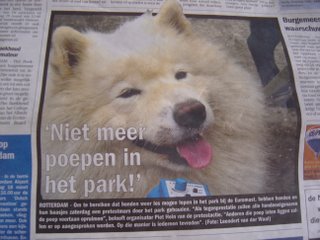Questions of Kissing and Other Greetings
But which cheek do I aim for first? It seems like the left is most common, but that went all wrong once before - and a friend and I, aiming for the same cheek, almost met in the middle. (Dan didn't get too jealous.)
And why are some Dutch resigned to a simple handshake? Sometimes, I know it is out of convenience, and maybe sometimes it is out of respect for us foreigners who don't know when or how to Dutch-kiss.
What about a simple hug? Why do kisses come before hugs? Oh, how I miss hugs...when we were back in the States, especially at our home church, I could have stayed there forever just soaking up the friendly hugs from everybody.
But I am also around a fairly large non-Dutch group of friends and acquaintances. How to decipher all the cultural norms? The Latins seem to kiss once on the cheek - unless (so goes my theory) they are feeling particularly Dutch, which is when they add two more kisses. But how does one know the protocol ahead of time? How to avoid the awkwardness? With the Africans, it is a friendly handshake...and there is no escaping the handshake! Other Europeans, one cheek kiss? Two? Three? I haven't discovered a pattern yet. Us Americans...we just hug!




